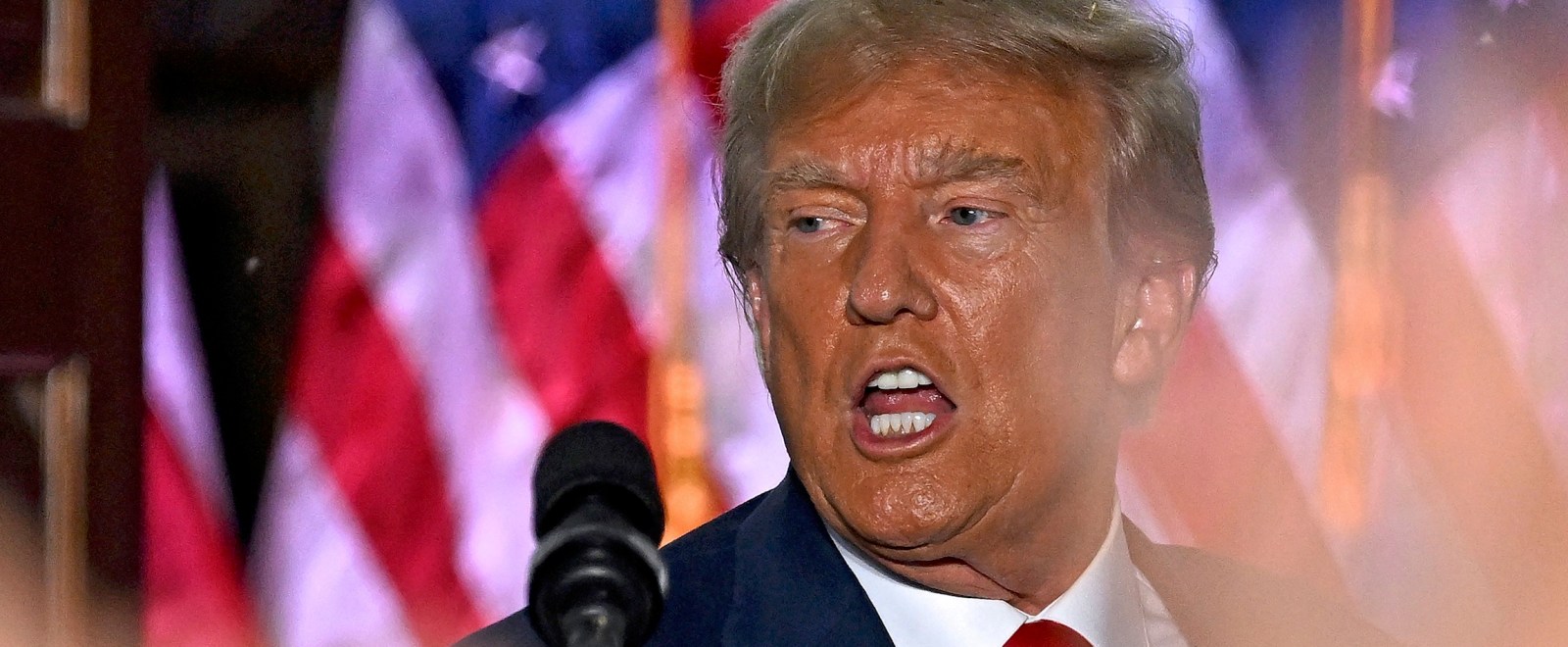Donald Trump has been crushing it in the polls, maybe even because, not despite, of all the indictments he’s racked up. But what if he doesn’t even have to be found guilty to be barred from being president again? What if his actions already disqualified him from ever serving again thanks to a little thing called the Constitution?
That’s what some prominent conservative scholars are arguing. In an op-ed published by The Atlantic, Harvard law professor Laurence H. Tribe and retired judge Michael Luttig point out that Section 3 of the 14th Amendment excludes “any person who has taken an oath to support and defend our Constitution and thereafter rebels against that sacred charter, either through overt insurrection or by giving aid or comfort to the Constitution’s enemies.”
That, Tribe and Luttig claim, fits Trump to a T.
“The former president’s efforts to overturn the 2020 presidential election, and the resulting attack on the U.S. Capitol, place him squarely within the ambit of the disqualification clause, and he is therefore ineligible to serve as president ever again,” they write. “The most pressing constitutional question facing our country at this moment, then, is whether we will abide by this clear command of the Fourteenth Amendment’s disqualification clause.”
Tribe and Luttig cite a new, soon-to-be-published, deeply-researched article (already available here) in an academic journal that comes to the same conclusion. Entitled “The Sweep and Force of Section Three” and written by William Baude and Michael Stokes Paulsen, affiliates of the rightwing Federalist Society, the paper points out that the section was added after the Civil War to prevent rebel Confederates from running for office and therefore subverting the nation. But it’s not only of its time:
The two of us have long believed, and Baude and Paulsen have now convincingly demonstrated, that notwithstanding its specific historical origin, Section 3 is no anachronism or relic from the past; rather, it applies with the same force and effect today as it did the day it was ratified—as does every other provision, clause, and word of the Constitution that has not been repealed or revised by amendment.
Baude and Paulsen also point out that Section 3 “requires no legislation, criminal conviction, or other judicial action in order to effectuate its command.”
Of course, banning Trump would not go over well with this famously amped-up base. “The process that will play out over the coming year could give rise to momentary social unrest and even violence,” warn Tribe and Luttig. “But so could the failure to engage in this constitutionally mandated process.”
They conclude:
The men who framed and ratified the Fourteenth Amendment entrusted to us, ‘the People of the United States,’ the means to vigilantly protect against those who would make a mockery of American democracy, the Constitution, the rule of law—and of America itself. It fell to the generations that followed to enforce our hallowed Constitution and ensure that our Union endures. Today, that responsibility falls to us.”
In the meantime, the jail-bound Trump is already skipping the GOP debates, so it’s almost like he isn’t running for president anyway.
(Via The Atlantic)

